© 2011-2025 The Avataric Samrajya of Adidam Pty Ltd, as trustee for the Avataric Samrajya of Adidam. All rights reserved.
Posted November 2017
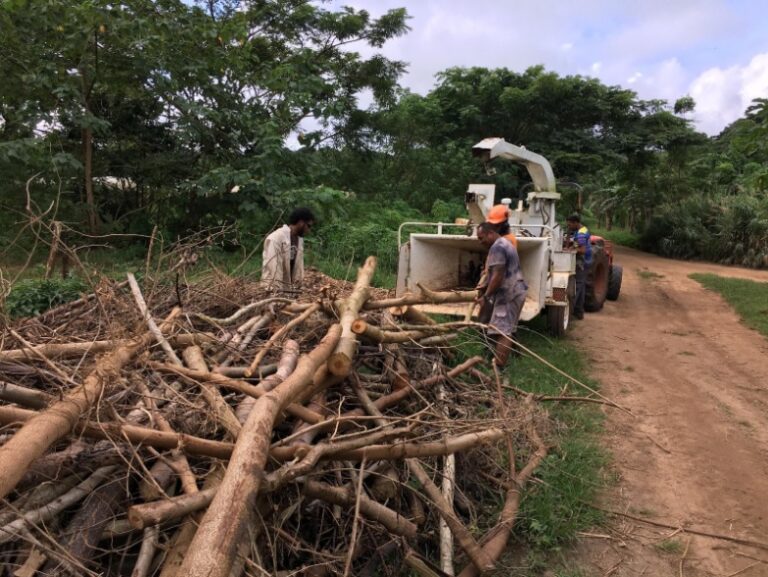
One of the most important things we can do to help improve and maintain soil fertility on the Naitauba organic farm is to use a lot of mulch.
Mulch is any sort of organic material—leaves, grass, wood chips, even old cardboard—that is laid on top of the soil, sometimes even as much as 4 inches thick.
The reason mulch is so important is that it helps protect the soil and the micro-organisms living in the soil from the hot sun and heavy rain that we get in this tropical environment.
Whenever we prepare a growing area before planting a new crop of vegetables or fruit trees we must first clear the soil of vegetation—remove old plants and weeds and “clean” the land for whatever we are going to plant next.
Soil that is bare is in its most vulnerable state. Just a day or two without protection is enough to damage the soil structure and disturb the micro-life in soil. If it rains heavily while the soil is exposed essential minerals can be washed out of the soil and the precious top-soil can be lost altogether due to erosion.
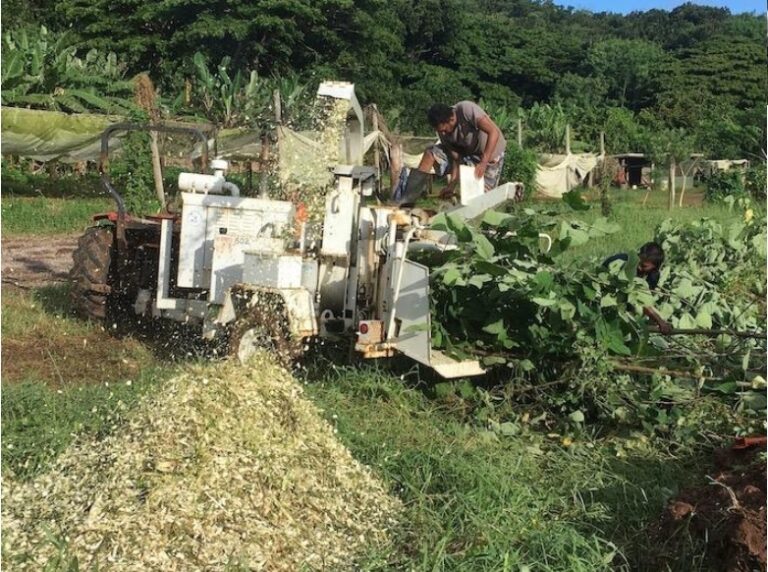
We are very fortunate on the Naitauba farm to have access to more vegetation material for mulching that we can possibly use. Since this is a tropical climate, it grows everywhere, including all over the farm if we let it! To convert all this endless supply of growing vegetation—grasses, bushes, trees, vines, weeds—into a usable form of mulch we need some mechanical help.
The best solution we have found for making mulch out of vegetation is to use a chain-saw and seles (machetes) to cut down the vegetation and then a combination of three different wood-chipping machines and a shredding machine to chop up the trees, bushes, leaves and grass into small pieces for mulching.
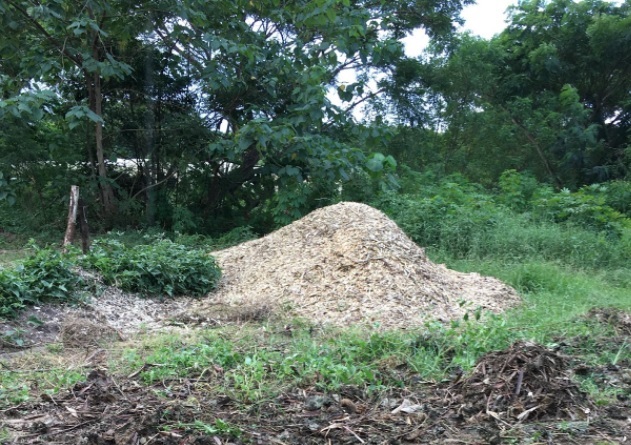
You may be asking: “Why does such a small farm need to have three different chipping machines?”
We have learned from making and using a lot of mulch over the years (many tons) that different types of crops grow best with different shapes and sizes and qualities of mulch. With three different chipping machines to choose from, we can make many different kinds and grades of mulch, depending on what we are planting at any moment and what sort of vegetation we have available to convert into mulch.
Banana or papaya trees are mulched with coarse wood chips. The farm borrows a large “monster” white chipper from the Naitauba Roads Maintenance Department when we need to chip up large trees to make this sort of mulch.
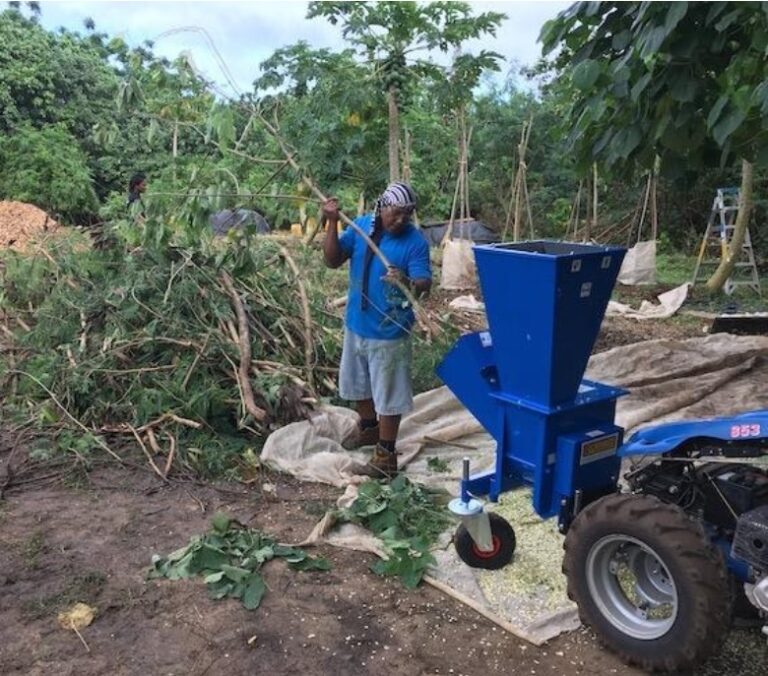
Vegetables grow best with a much finer and softer mulch than the coarse wood chips we use for fruit trees and covering pathways.
To make this finer mulch we cut small bushes and branches and put them through either our baby green chipper (for very fine mulch) or our blue mid-sized Italian chipper, that is powered by the BCS two-wheeled tractor.
Almost every week we’re busy with some stage of the mulching process—cutting down the bush to feed into the chippers, processing the cut vegetation through the chipping machines, spreading the mulch onto the plant beds, or putting the chip material into compost piles.
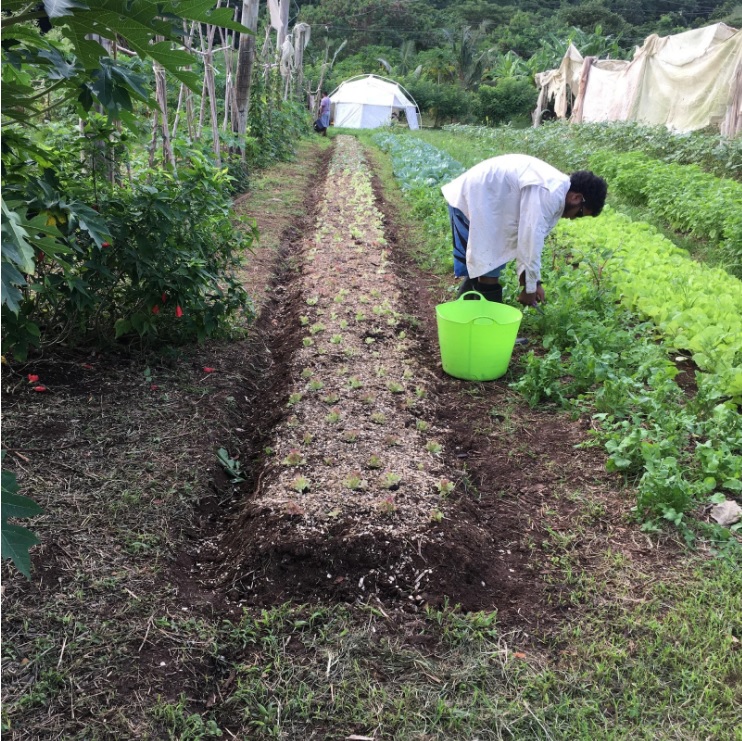
We have been following a consistent mulching program now for about five years and we certainly see the difference it is making to the health and fertility of the farm soils.
We are also noticing other benefits from the mulching—for example, the vegetables need less watering in dry weather because water is held better in the soil when covered with mulch. There are less problems with weeds also—they have a harder time growing through the mulch.
Because the fertility of the soil is improving, our cabbage and lettuce plants are healthier, not getting diseased in hot weather and not getting eaten so badly by insects and other pests.
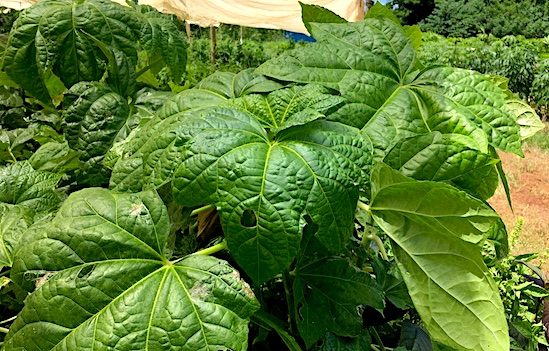
© 2011-2025 The Avataric Samrajya of Adidam Pty Ltd, as trustee for the Avataric Samrajya of Adidam. All rights reserved.